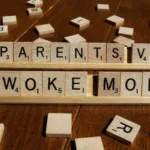
Published November 10, 2023
To hear them talk about it, feminists are fighting an uphill battle with the patriarchy, the pay gap, and gender inequality. But after Tuesday’s abortion victories in Ohio, Virginia, and Kentucky, it might just be time for feminists to spike the football and claim their victory: Feminism as an ideology has triumphed in America.
Until Tuesday night, hope remained that some pro-life victories were to come post Dobbs. In 2021, Glenn Youngkin shocked pollsters in the off-cycle election by becoming Virginia’s governor. He won by appealing to parents who were disgusted and afraid of the radical woke agenda taking over Virginia schools. Now, two years later, Youngkin’s influence has shriveled. Voters shifted from the plight of their school children to a fear that parents might not be able to kill the children they don’t want. Abortion won big in Virginia.
Deep-red Ohio fared much worse, enshrining abortion at any stage of fetal development into its state Constitution by a 56.5 percent majority. Other states have passed similar legislation, but they are very blue. Red Ohio was a test case to see if the abortion machine, laden with $35 million in out-of-state money, could carve out a victory. Even red Kentucky reelected a pro-abortion governor. Abortion proponents will not stop at Ohio. Arizona appears to be next, and there is no reason to believe that the juggernaut of money, power, and influence will be slowing anytime soon.
In the run up to Tuesday, there were certainly missteps and missed opportunities by pro-lifers, but the biggest obstacle remains the women’s vote. Election after election, women are consistently voting for pro-abortion candidates. Abortion’s sway is an obvious political reality. Few, however, are asking how abortion became the default female position. Why is it that the pro-abortion party appears to be unstoppable? What is abortion’s magical grip on the country?
The story is a long one, chronicled in my book, The End of Woman: How Smashing the Patriarchy Has Destroyed Us (Regnery, 2023). It starts in the early 1800s when the young Percy Bysshe Shelley created the myth of the first-ever independent woman, free of husband and the demands of fertility. While his wife, Mary Shelley, wrote Frankenstein, Shelley conjured up his own creature, the mythical Cythna.
Shelley was the first to bring together the three elements that would characterize feminism up to our own day: (i) eradicating monogamy; (ii) the occult; and (iii) radical egalitarianism, which came to be expressed as “smashing the patriarchy.” The young poet framed these three pieces into what he called “the women’s revolution,” where he presciently saw the future erasure of gender altogether. But Percy, along with most feminists who followed, asked one simple question: “How do we make women more like men?” They looked not to “help women as women” but to “give women the privileged life of men.”
Flash forward to Betty Friedan in 1963, who proposed the abandonment of the home as a way for communism ideals to animate America in The Feminine Mystique. Steeped in the writing of Marx and Engels, Friedan believed that women could only be free when they left “the comfortable concentration camp” of home and embraced productive work as the key to women’s freedom.
Shortly thereafter, the New Left engaged feminism as a vehicle to promote sexual deviancy and break down tradition, family, and male authority. Kate Millett and Angela Davis were at the front of the movement, challenging women to be just as brave as soldiers in Vietnam and kill the children in their own wombs.
Elite women throughout the U.S. took feminism on as the new banner of freedom. Abortion offered the promise of the masculine ideal. Every cultural institution since has adopted feminism’s narrative — academia, politics, fashion, magazines, Hollywood, and publishing. Feminism has become the predominant narrative through which most Western women think.
In its success, feminism has convinced women that their husbands and children are an obstacle to their happiness; that the home is a place of enslavement and pain; and, more recently, that their very bodies need injections and modifications to become like a man’s body, to skirt fertility or become so-called trans men.
The feminist myth rests upon one very important idea: A woman’s fertility is not essential to who she is. Abortion makes this myth believable. But in the scramble to believe that myth, women have been left grasping for meaning and purpose, to the point that few can even define what a woman is. What is missing is the reality that women’s very being is designed for motherhood, to carry, raise, and nourish children. A woman’s soul is formed to mother others — not just physically, but psychologically and spiritually. Feminism has stripped us of the very essentials of womanhood and left us as, in Aristotle’s words, deformed males.
This distorted reality is reflected in the deep unhappiness affecting so many women today. Every metric shows that women are less happy than they were before feminism won the culture war, as demonstrated in rates of depression, suicide, STDs, substance abuse, and divorce. Women are not happier; they’re just more medicated.
Abortion will continue to gain a greater foothold in our country because feminism has truly triumphed in the minds of American women. To stop it, we must awaken women and men from feminism’s deadly spell before we all realize, with great regret, that the feminist fight isn’t just destroying babies — it’s destroying all of us.
Carrie Gress, Ph.D., is a Fellow at the Ethics and Public Policy Center, where she co-directs EPPC’s Theology of Home Project. She earned her doctorate in philosophy from the Catholic University of America and is the co-editor at the online women’s magazine Theology of Home.












